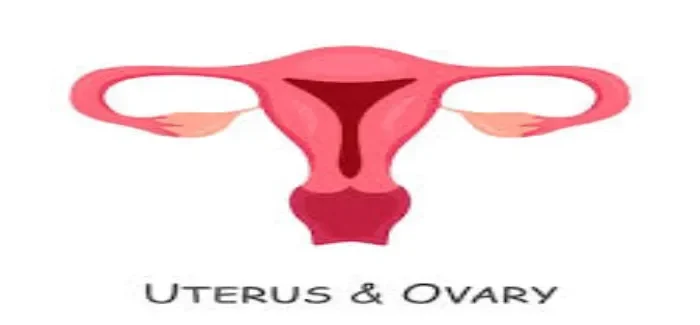Is Ovary Size Important to Get Pregnant?

Posted Date: April 30th, 2024
The pregnancy journey can be influenced by many factors and the size of the ovaries is one of them. Ovaries are the essential reproductive organs in females’ bodies and play an important role in fertility by producing eggs. The size of a woman’s ovaries has always been a debating topic because of its influence on the conception process. Understanding how ovary size relates to fertility is essential for couples who want to start a family or are facing infertility challenges. In this blog post, we will tell you everything that helps you to understand the aspects of ovary size, reproductive health, and its physiology. So, what are you waiting for? Read on to know more about the context!
How does ovary size affect the pregnancy?
As we said earlier, an ovary is a very important reproductive organ in females’ bodies that plays a crucial role in fertility and reproduction. In other words, ovary size and health can impact fertility due to its connection with the production and release of eggs (or ovulation). During ovulation, after releasing from the ovary, a mature egg travels to the fallopian tube so it can be fertilized by the sperm.
On the other hand, the number or quality of the eggs produced by the ovary can affect the conception process. For instance, the larger size ovaries may produce a higher number of follicles that indicate the greater chances of ovulation and conception. Differently, abnormal, or small size ovaries might show the underlying health issues that could impact fertility.
Hence, the health and size of the ovaries impact the chances of conception for couples who want to start a family. It is better to consult with your healthcare professional if you find any issue that can impact your pregnancy journey.
What is the size of an ovary considered to be normal?
In the female body, ovaries are responsible for producing and releasing eggs or hormones such as estrogen or progesterone during the menstrual cycle. When it comes to the size of ovaries, then it is important to know how to measure it? The normal size of an ovary is generally measured in three dimensions: Length, width, and depth. It is often represented in millimeters (mm) or centimeters (cm).
Furthermore, the right ovary normal size and left ovary normal size are typically similar, with only small variations between the two. Here look at the below to know the aspects of normal ovary size:
The normal ovary size in mm and cm:
The healthy and normal size of an ovary is 30 mm long, 25 mm wide, and 15 mm thick or depth. In other words, the size of the ovary is considered normal if they are 3 cm long, 2.5 cm wide, and 1.5 cm in thickness. However, it is important to understand that these measurements only represent the general range. The ovaries size can change during the menstrual cycle of women as the follicle’s development can lead to a temporary increase in ovary size.
The normal ovary size in cc:
Ovary size can also be measured in cubic centimeters (cc). On average, to calculate the size of an ovary in cc, the volume formula can be helpful to use: (4/3) π × (length/2) × (width/2) × (depth/2). As per this formula, the average normal size of an ovary ranges from 4 cc to 8 cc. Moreover, individual variations can be changed due to a woman’s menstrual cycle.
What factors affect the size of an ovary?
There are many factors that can affect the size and health of ovaries and they are:
1. Age: Age is one of the most important aspects to consider to start a conception journey. Generally, ovary size tends to decrease with age so it is important to think about pregnancy in your 20s or 30s.
2. Hormonal Imbalance: Certain underlying conditions such as PCOS (polycystic ovary syndrome) can cause ovarian enlargement due to hormonal imbalances. It is essential to consult with your doctor if you have PCOS disorder.
3. Ovarian Cysts: The presence of cysts can also be the reason of changes in ovary size, with larger cysts potentially impacting fertility.
4. Endometriosis: This is a disease in which tissue like the lining of the uterus grows outside the uterus area. It can cause ovarian enlargement and affect fertility.
5. Ovulation Disorders: Ovarian size can also be affected by irregular ovulation patterns. It is important to consult with your healthcare provider if you find anything like this.
6. Lifestyle Factors: An unhealthy diet, stress, and many environmental factors can affect the size and health of the ovaries. In this situation, it becomes important for women to consult with their doctor.
Tips to consider to improve ovary and egg health.
To improve your ovary or egg health and size you should follow the below mentioned tips, such as:
To improve your ovary or egg health and size you should follow the below mentioned tips, such as:
1. Maintain a healthy diet: Consuming a properly balanced diet or nutrient-rich foods can support the overall reproductive health and can promote the better ovarian function.
2. By managing your stress: Trying stress-reducing techniques can also be helpful to improve your ovary health. These techniques include meditation or yoga that promote hormonal balance.
3. Avoid Smoking and Excessive Alcohol: These substances can negatively impact fertility and ovarian health.
4. Maintain a Healthy Weight: Obesity or being underweight can affect ovulation and ovarian function. This is important to maintain healthy BMI.
5. Seek Regular Medical Check-ups: It is necessary to get routine gynecological exams, as it can be helpful to detect any potential issues and ensure better ovarian health.
See also
The conclusion
To sum it up, the ovary size typically affects the conception journey. It is important to understand ovary size aspects before starting your pregnancy as it can lead to serious complications. Also, by following the above-mentioned tips and lifestyle practices you can maintain ovarian health. However, consult your healthcare provider to address any fertility concerns to achieve a successful pregnancy.
FAQS
QUES 1: What is the right and left ovary normal size in mm?
ANS: The normal size of the right and left ovary generally ranges from 30 mm long, 25 mm wide, and 15 mm thick.
QUES 2: What are the symptoms of poor egg quality?
ANS: Irregular menstrual cycles, infertility, recurrent miscarriages, etc. can be one of the main symptoms of poor egg quality.
QUES 3: Can you get pregnant with small ovaries?
ANS: Yes, pregnancy is possible with small ovaries but it can lead to complications and can also affect fertility.
QUES 4: Can I get pregnant with a left ovary?
ANS: Yes, pregnancy is still possible with a single ovary as long as they are healthy or it doesn’t matter whether its left or right ovary.
Sources
- Wikipedia. Ovary. Retrieved from https://en.wikipedia.org/wiki/Ovary on 30 April 2024.
- Wikipedia. Ovarian Pregnancy. Retrieved from https://en.wikipedia.org/wiki/Ovarian_pregnancy on 30 April 2024.
- Wikipedia. Pregnancy. Retrieved from https://en.wikipedia.org/wiki/Pregnancy on 30 April 2024.
Related Posts
Dr. Emily Carter is a seasoned health writer and wellness advocate at Healths News Today. With over a decade of experience in the healthcare industry, she specializes in translating complex medical information into easy-to-understand content that empowers readers to make informed decisions about their health.








